Delays in discipline criticized
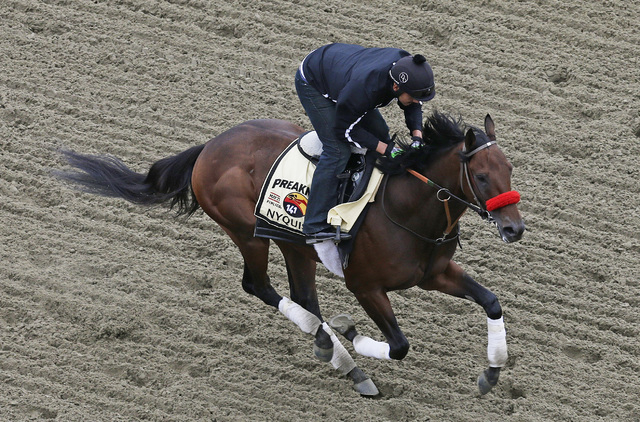
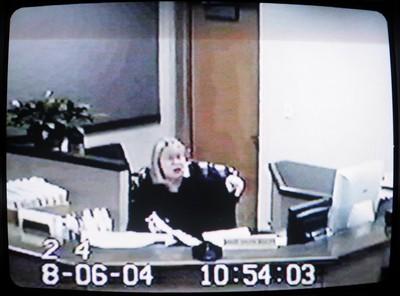
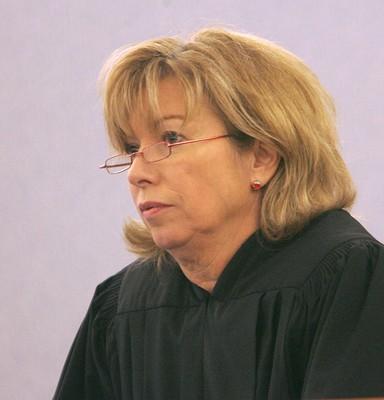
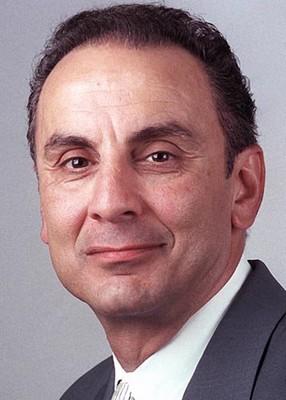
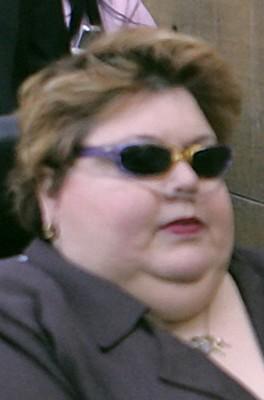
District Judge Jeffrey Sobel was conducting a pretrial conference in his chambers in April 2002 when he crossed the line of ethical behavior by confronting one lawyer about his failure to contribute to Sobel’s re-election campaign and another who had attended a campaign event for the judge’s opponent.
Months earlier, Sobel had raised the ire of another lawyer who had a case pending before him by demanding to know why the lawyer had given less to his campaign than to his opponent’s.
Sobel’s actions in both instances were serious enough to attract the attention of the Nevada Judicial Discipline Commission, but more than three years passed before the commission reprimanded him and barred him from the bench. By then, Sobel had long since lost his bid for re-election.
Critics of the state’s judicial discipline process, including Clark County’s chief district judge and the former chief justice of the Nevada Supreme Court, say the commission is taking too long to investigate complaints. They offer the Sobel case as a prime example.
“I think the Judicial Discipline Commission’s losing credibility in this state because of the delay between when a complaint is filed and the final resolution of that complaint,” said Chuck Short, Clark County District Court administrator. “That time lag is excessive.”
Short said the commission should need no more than a year to investigate and rule on a complaint, but he estimated the process has been taking, on average, twice that long.
He said Chief District Judge Kathy Hardcastle reported two judges and one hearing master to the commission many months ago and continues to wait for a resolution of those matters.
He declined to elaborate, other than to say he knows that two of the complaints have been pending for nearly a year. Hardcastle would not say how many complaints she has filed and wouldn’t discuss any specifics regarding those complaints.
That’s because it’s not just a slow process, it’s also a mostly secret one.
Under Nevada law, all commission proceedings must remain confidential until the panel makes a finding that probable cause for disciplinary action exists. The commission then designates a prosecuting attorney to file a formal statement of charges, and the case proceeds to a public hearing.
Anyone who violates the confidentiality requirement may be held in contempt and fined or may be put in jail.
The American Civil Liberties Union of Nevada filed a federal lawsuit against the commission in 2002 in an unsuccessful effort to overturn the confidentiality requirement. ACLU attorney Allen Lichtenstein recently said his organization is preparing to revisit the issue with a new lawsuit.
notify, then wait
Hardcastle said judges have an obligation to notify the commission whenever they learn about judicial misconduct. She said the commission should determine within 90 days whether probable cause exists for disciplinary action. If the panel makes that finding, she said, it should conclude the matter no later than nine months after the filing of the complaint.
“If we know there’s a problem with a judge … it needs to be addressed quickly,” the chief judge said.
In recent months, Hardcastle has publicly criticized District Judge Elizabeth Halverson. Hardcastle went so far as to bar the newly elected judge from the courthouse. Halverson took the fight to the Nevada Supreme Court, arguing that only the Judicial Discipline Commission had the authority to punish her.
Records in the case, which is pending, include allegations that Halverson required her bailiff to rub her feet and give her back massages. Staff members also complained that their duties included keeping Halverson awake in court.
In addition, Halverson has faced accusations that she acted improperly when she met with jurors in two cases outside the presence of attorneys.
Hardcastle’s response to Halverson’s filing with the high court boiled down to her saying that she had to take action immediately to protect the public, people who work in the courthouse and the integrity of the judicial system itself.
In other words, Hardcastle couldn’t wait a year or more for the discipline commission.
David Sarnowski, the commission’s general counsel and executive director since March 2002, contends that complaints rarely take more than a year to adjudicate. But the commission compiles no statistics on the length of time it spends on cases, he said.
Sometimes, the commission has good reasons for taking longer than a year to resolve complaints, Sarnowski said.
“The main focus is on making sure the process is fair for the complainants, the judges and the public,” he said.
The commission’s seven members work part time and are scheduled to meet just once a quarter. They live in various parts of the state.
“It’s extremely difficult to conduct business of this kind when everyone’s in a different place,” Sarnowski said.
Multiple or serial complaints against a judge also can prolong an investigation, he said, and sometimes an investigation leads to information about other misconduct “or what appears to be misconduct.”
“We would rather get it right than act too fast,” Sarnowski said. Sometimes, he said, the commission chooses to wait for action in underlying court cases.
“The commission takes great pains to not interfere with litigation,” Sarnowski said.
In the Sobel case, the executive director said, the commission tried to accommodate Sobel, who requested delays.
Behind-the-scenes negotiations also added to the time needed for the commission to resolve the matter, he said.
Like Sarnowski, District Judge Mark Denton, a member of the discipline commission for more than six years, disputed the assertion that complaints have been languishing. Denton said the commission could “perhaps” move more quickly if it met more often, but he has witnessed no “dragging of feet.”
“These cases do take a lot of time to properly develop and handle. They’re not just simple matters, in most cases.”
TWO YEARS, FOUR YEARS
Bob Rose, former chief justice of the Nevada Supreme Court, knows about the difficulties the commission faces. Still, he believes the process needs to be speeded up. When he formed the Article 6 Commission last year to find ways of improving the state’s judicial system, he put the judicial discipline process on the panel’s list of issues to explore.
“Some of the cases seemed to be taking a long time to be disposed of,” Rose said.
He cited the cases of Sobel, Family Court Hearing Master Sylvia Beller and Las Vegas Municipal Judge George Assad as examples.
The Judicial Discipline Commission reprimanded Beller in June 2006 for ordering the removal of a 16-year-old defendant’s shirt and belt during a sentencing hearing. The incident had occurred almost two years earlier, in August 2004, and received extensive publicity.
A videotape of the court hearing showed the handcuffed teenager’s pants falling to the floor, exposing his boxer shorts, after his belt was removed.
Beller was punished for her behavior in 2004, but not by the Judicial Discipline Commission. Beller’s supervisor required her to serve a four-week unpaid suspension and to take at least 20 hours of ethics training. He also barred her from hearing juvenile cases.
In making its ruling in 2006, the Judicial Discipline Commission took into account Beller’s prior punishment and declined to punish her further.
“They can’t be effective if they’re going to take that long,” Hardcastle said.
In Assad’s case, he had detained a defendant’s girlfriend without any legal basis. The woman had gone to court on her boyfriend’s behalf in March 2003, and Assad ordered his bailiff to take her into custody to coerce her to call her boyfriend and persuade him to come to court.
The commission reprimanded Assad in February, almost four years after he had detained the woman.
“What good does it do to take action four years later?” Hardcastle asked.
During that length of time, she said, the judge in question either will have improved or continued to engage in misconduct. Even a year is excessive, she argued.
“It’s not fair to anybody involved in the process if they drag the process out that long — not the public, not the courts, not the judge,” Hardcastle said.
Likewise, Rose said claims of improprieties by judges should be investigated as quickly as possible, either to vindicate the judge or to address the judge’s unethical behavior.
“Getting to these things as quickly as possible is really important for the judiciary and the public,” he said.
Rose and Short each said the process seems to have slowed in recent years. Neither man could identify a cause of the apparent trend, but Rose said he hopes the Article 6 panel will come up with some answers.
“Maybe they need more help,” Rose said of the discipline commission. “Maybe they need more personnel. Maybe they need to have the commission sit in panels.”
Statistics show that the commission considered 170 complaints in 1996. That fiscal year, the commission dismissed 139 of the complaints and assigned the other 31 for investigation.
By comparison, the commission considered 164 complaints in fiscal 2006 and assigned 40 for investigation.
Sarnowski does not say that the commission needs more money. In fiscal 2006, the commission’s budget was $501,000, but it returned nearly 9 percent of the funds at year’s end.
“Historically, since I’ve been here, we’ve actually returned money,” Sarnowski said.
Short said he thinks the commission needs a larger staff.
“It seems to me there’s too much work for two people to handle in an expedient fashion,” the court administrator said.
The discipline commission’s staff consists of Sarnowski and a full-time management analyst. It contracts with private investigators to investigate complaints.
JUSTICE DELAYED, JUSTICE DENIED
Las Vegas attorney Robert Murdock, a witness in the Sobel investigation, thinks the discipline commission should be disbanded.
“I don’t think any of the sitting judges right now are afraid of the committee,” Murdock said. “I think they’re afraid of the electorate.”
Murdock became involved in the Sobel investigation after the judge called his office in 2001 and instructed the lawyer’s secretary to pull him out of a deposition. Sobel wanted Murdock to donate to his re-election campaign.
“I felt as though I was being strong-armed,” recalled Murdock, who gave the judge $500.
Later, Sobel wrote Murdock a letter in which the judge demanded to know why the lawyer had given a larger contribution to his opponent, Jackie Glass.
That prompted Murdock to ask Sobel to recuse himself from a civil case the lawyer had pending in his court. The judge did.
Murdock said he did not file a complaint with the Judicial Discipline Commission over the matter and does not know who did, but he received a subpoena and testified about Sobel’s conduct during a commission hearing held after the judge was defeated.
Murdock said he has no idea why the commission took so long to take action against Sobel, who died last year.
“Justice delayed is justice denied, and in that case, I think Jeff got justice denied,” Murdock said. “And that’s not saying that Jeff didn’t do wrong, but the punishment needs to fit the crime and needs to be handed down swiftly.”
Punishment that comes too long after the offense has no meaning and “makes a mockery out of everything,” the lawyer said.
“At that point, it’s revenge or retribution,” said Murdock, who thinks the commission treated Sobel too harshly and “kind of kicked him when he was down.”
Sobel also was already out. Glass defeated Sobel in the 2002 election with 61 percent of the vote.
“Frankly, what really happened in that case is that the election system of judges worked,” Murdock said.
But the voters don’t always come into play under the current system and may have a reduced role in the future.
Some judicial officers receive their positions by appointment and never face voters. They include temporary judges known as judges “pro tem,” senior judges and hearing masters. Their conduct, like that of elected judges, falls under the purview of the Judicial Discipline Commission.
And this year, Nevada has seen a push to change the way judges are chosen. The proposed new process would give voters the choice of either retaining or rejecting sitting judges and justices.
When vacancies arise, a selection committee would recommend candidates to the governor for appointment.
Halverson and Jones
Highly publicized controversies involving two elected Clark County judges during the past year have many wondering where the Judicial Discipline Commission stands on them.
Halverson has made headlines regularly since joining the bench in January. After attorneys began complaining about Halverson’s performance, Hardcastle asked her to meet with three veteran district judges.
According to an affidavit prepared by one of those judges, Stewart Bell, the group tried to warn Halverson that the discipline commission could remove her, but she refused to listen.
The affidavit claims courthouse staff had “made allegations which, if sustained, would amount to violations of law, county policy and union contracts.”
In April, the veteran judges recommended that Hardcastle take away Halverson’s criminal cases, and the chief judge did so. Then, in May, Hardcastle barred Halverson from the Regional Justice Center, claiming she put courthouse security at risk when she brought her two personal bodyguards into secured areas of the courthouse.
The move prompted Halverson to seek intervention from the Nevada Supreme Court, which allowed Halverson to return to work. She continues to hear civil cases.
Family Court Judge Steven Jones also has continued to hear cases since his arrest last year following a domestic dispute with his live-in girlfriend, Amy McNair.
Jones was acquitted of the battery charge, but McNair testified that FBI agents had asked her whether Jones was associating with known felons. News media in Las Vegas have reported extensively about Jones’ association with two felons.
Questions also arose about Jones’ ethics after he accepted three separate campaign contributions from Beller’s husband, attorney Neil Beller.
Neil Beller made the contributions, totaling $4,500, three months after Jones chose to suspend the hearing master rather than fire her. Jones was Family Court’s presiding judge, and thus Sylvia Beller’s supervisor, when she was disciplined by the court in 2004.
Neither Hardcastle nor Short would comment on the controversies surrounding Halverson and Jones.
“A strong and expedient judicial discipline process will facilitate public trust in judges and their decisions, and that’s the bottom line,” Short said.
NEVADA JUDICIAL DISCIPLINE COMMISSIONThe Nevada Judicial Discipline Commission was created in 1976 to investigate allegations of judicial misconduct or disability.
Anyone, including the commission’s executive director, may file a complaint against a judge. The commission does not have the authority to consider complaints concerning legal errors made by a judge. That responsibility falls to the appellate court system.
The judicial commission can impose various forms of punishment, ranging from a reprimand to removal from office. Since 1998, the commission has banned five judges from the bench.
It is composed of seven members: two judges appointed by the Nevada Supreme Court, two attorneys appointed by the State Bar of Nevada’s Board of Governors, and three lay people appointed by the governor. State law does not limit the number of terms a commissioner may serve.
The attorney and lay members receive $80 a day when the commission meets, plus expenses. The judges receive pay only to cover their expenses.
Current members of the commission are:
• Greg Ferraro, chairman. The Republican political consultant was appointed by then-Gov. Kenny Guinn to a four-year term that expires in January 2009.
• DaVeen Nave, vice chairwoman. Guinn appointed Nave, a community volunteer, to the commission in 2001 and reappointed her in 2004. Her term expires in January 2009.
• Doug Jones. Guinn appointed Jones, an executive in two companies, to the commission in 2007. His term expires in January 2011.
• Karl Armstrong, attorney. Armstrong was appointed as an alternate commissioner in 2001. He was appointed a commissioner in 2003 and twice reappointed. His term expires in January 2011.
• James Beasley, attorney. Beasley was appointed in 1999. He was twice reappointed, and his term expires in January 2009.
• Clark County District Judge Mark Denton. He was appointed in 2000 and later reappointed. His term expires in January 2009.
• Washoe County Chief District Judge Jerome Polaha. He was appointed in 2003 and later reappointed. His term expires in January 2011.
REVIEW-JOURNAL












